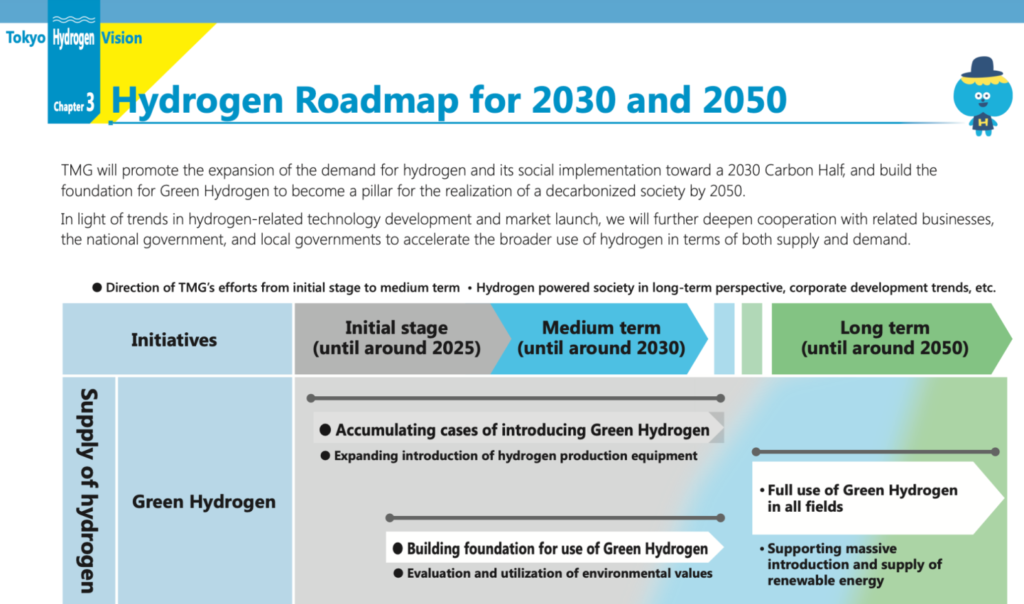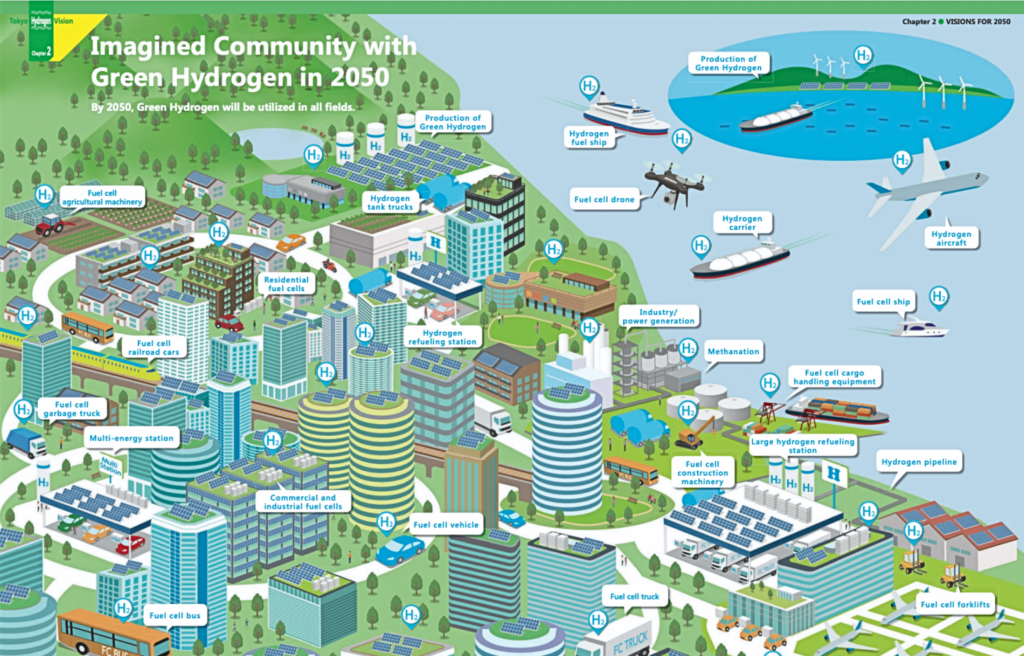Publication date: Jan 19, 2024
The Tokyo Metropolitan Government will introduce a new system to certify users of hydrogen produced from renewable electricity in 2024. This certification scheme is designed to incentivize the use of green hydrogen and promote its wider adoption throughout Tokyo by verifying a company’s previous year’s green hydrogen use.
The Tokyo Metropolitan Government has set a goal to achieve “carbon half” (reducing CO2 emissions by 50%) by 2030 compared to 2000. Last March, it published a hydrogen roadmap, which identifies this certification scheme as an important step in encouraging the use of green hydrogen in a wide range of industries and bringing down its costs of production.

Certification categories are divided into the following:
- On-site: A business generates its own renewable energy to produce hydrogen on site in Tokyo
- Local production and use: A business uses green hydrogen produced by a third party in Tokyo
- Off-site: A business uses green hydrogen produced outside Tokyo but inside Japan. Transport via EV or fuel cell vehicle, or offsetting transport emissions is a precondition
The application period for companies to be certified for their green hydrogen use in 2023 will begin in April, and the results will be announced in September.
Japanese energy companies are forging ahead with joint projects to produce green hydrogen abroad. However, green hydrogen production inside Japan remains limited, with only two facilities – in Yamanashi and Oita Prefectures – currently in operation.
The number of applicants likely to apply for certification in April is expected to be low, but it is hoped that the scheme will encourage green hydrogen use and numbers will rise quickly over coming years.

________________________________________________________________________________
Thank you for reading. At Shulman Advisory, we provide a comprehensive suite of services related to the Japanese Power Market. We are proud to offer a wide breadth of services, covering everything from market entry strategy, local representation and project management, to deal advisory, power procurement support, and technology scouting. Our dream team of experts puts monitoring and analysis of Japanese energy policy and regulation at the center of our day-to-day operations to cultivate unique insights with material value to our clients.
Feel free to send us a message here to schedule a friendly discussion about how we might help you achieve your goals and more in the Japanese energy sector.
